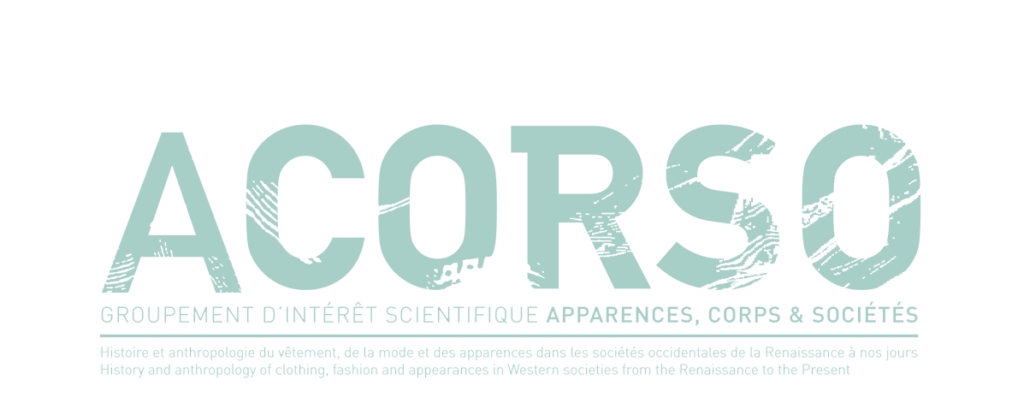LabSIC research in the Asia-Pacific-Indian Ocean region
Coordinator : Philippe Bouquillion
Asia-Pacific and the Indian Ocean are particularly interesting geographical areas for research in information and communication sciences carried out at LabSIC. The exceptional development of cultural and creative industries as well as digital industries is the result, on the one hand, of regional giants with increasingly assertive transnational and even global ambitions. Among these players are the Chinese digital giants known as BATX (Baidu, Alibaba, Tencent, Xiaomi) but also Korean players such as Samsung or even Indians, especially Reliance Industries and its subsidiary Reliance JIO (active in telecommunications, cultural industries and digital). The historical role played for several decades by Japanese actors, including Sony, should also be remembered. On the other hand, this development is also due to small businesses, as well as an artisanal sector, which in some countries of this region plays a central economic and social role. We can observe methods of organization between products and industrial actors, methods of financing and promotion, but also methods of creation and distribution specific and distinct in many aspects from those existing in Europe or North America. Among these specificities, the informality of the economy is central. The relationship with the public authorities is also very particular, sometimes very close, as in China, or quite distant, in India for example, and more often linked to censorship plans than to real industrial policies for culture and communication. However, the stakes of control of the public space by censorship and the will of the public authorities to influence the balance of power between industrial actors are linked, the actors accepting censorship benefiting from various advantages. The theme of digital sovereignty also plays a growing role both in relations with the former “centre” of the “world-economy”, the United States, and in the face of new Chinese ambitions.


Then, these geographical areas constitute privileged cases to observe communication innovations carried by digital technology. Smart Cities, social networks associated with e-commerce sites or video games are all devices, standards and uses to be studied. The solutions adopted in these geographical areas are as original as they are innovative. Similarly, questions related to platforms, “artificial intelligence”, algorithmic data processing, crypto-currencies, blockchain, and integration into infrastructures including the Cloud are particularly acute and renew the hegemony issues.
Finally, these spaces are rich in challenges from the point of view of public spaces, the circulation of discourses and models: craftsmanship is thus at the heart of the defense of Indian national identity, faced with the great internal disparities of Indian Federation, but also in the face of the big Chinese neighbor. Similarly, new and exemplary contributions of the public space to the reorganization of the commercial sphere (development of new forms of advertising and promotion of products around data, construction of new social spaces and temporalities favoring new forms of consumption, particularly around social networks, etc.) are occurring in this area. Similarly, as has just been underlined, the issues related to public space, public policies and industrial power relations and specific methods of industrialization are closely linked.


The four themes of LabSIC can therefore be directly concerned.
The research carried out at LabSIC on this space associate different partners, local or French, with skills to assess local situations while within LabSIC we master the general issues related to cultural and creative industries, digital and public space.
The first of this research was carried out between October 2009 and April 2011, as part of the “Very high speed” (THD) program conducted around the experimental platform set up by the Cap digital content competitiveness cluster as well as the House of Human Sciences Paris Nord (Maison des sciences de l’Homme Paris Nord). In particular, it gave rise to the production of an international benchmarking of experimental platforms for high-speed broadband services. Surveys have been conducted by LabSIC researchers in Korea and Japan on broadband networks, but also on the strategies of the main players in the culture and digital industries as well as on public and regulatory policies.
Then, an international network was built centered on research on design and craftsmanship in India. This network makes it possible to articulate the work of Indianist researchers with the research and approaches developed within the LabSIC. A first step was taken in 2011 with the creation by Catherine Servan-Schreiber and Raphaël Rousseleau (from the Center for the Study of India and South Asia, Centre d’étude de l’Inde et de l’Asie du Sud, EHESS – CNRS) as well as by Julie Peghini (Cemti, Paris8 University) of the “Cultural and Creative Industries” Network-Team (directed by Catherine Servan-Schreiber). The work was then essentially focused on the relationship between craftsmanship and design. This first phase notably led to the publication of a collective book in 2018, which was the first academic book published on this theme: Artisanat et design, un dessein indien? (Handicraft and design in India: an Indian perspective?) co-directed by Philippe Bouquillion, Julie Peghini and Catherine Servan-Schreiber, Brussels, Editions Peter Lang. This same network of researchers was mobilized for the study of Smart Cities in Mauritius where a majority of the population is of Indian origin. Smart Cities have been put into perspective with the historically complex and conflicting relationships of the various groups of population on the island. Moreover, among the activities at the heart of the valuation of Smart Cities are the cultural, educational and creative industries, which then maintain a complex relationship of co-valuation with land.
Finally, a network bringing together Indian and French researchers has been set up to work on the cultural industries in India and on the issues of trans-nationalization of culture, particularly the audiovisual sector. A network has been built between LabSIC researchers working within the framework of the Labex ICCA and Indian researchers with, on the one hand, the Center for Internet and Society (CIS) and, on the other hand, a team around Vibodh Parthasarathi of Jamia Millia Islamia University. It was a question of articulating the approaches of Indian colleagues (public space for the CIS and media economy for Vibodh Parthasarathi) with the theory of cultural industries. It is with this objective of building an interdisciplinary and inter-institutional Franco-Indian research network that we co-organized with the UNESCO office in Delhi and these Indian colleagues the symposium “Digital Transition in the Cultural and Creative Industries in India” in February 2018. To carry out these activities, the Labex ICCA hired in September 2017 and until August 2021 a post-doctoral researcher (doctor in geography, specialist in art industries in India), Christine Ithurbide. Today, she is a researcher at the CNRS (UMRR 5319 Passages) and associate researchers at LabSIC, actively pursuing her activities with permanent researchers from LabSIC around these questions.
Among the activities carried out in 2021 can be mentioned the organization of two days of international seminars in Paris on June 28 and 20 whose title was “Digital Platforms In The Global South: Shapping A Critical Approach”. This seminar co-organized by Carism with Tristan Mattelart (Paris2 University), by UMR Passages with Christine Ithurbide and by LabSIC with Philippe Bouquillion brought together more than twenty researchers from the Asian, American, African and European continents. and made it possible to establish a cross-cutting critical dialogue in the different geographical areas on the deployment of digital platforms.
Publications
- BOUQUILLION Ph. « Les enjeux des industries créatives en Inde », Les enjeux de la communication (2016)
- BULLICH V « Over the top content distribution platforms : new strategies, new production norms », Colloque international « Art and cinema industries in India : Norms, workers and territories », organisé par l’Institut français en Inde, le Centre for Social Sciences and Humanities (New Delhi) et l’Ambassade de France au Laos. The Kiran Nadar Museum of Art, Saket, New Delhi, 6 mai 2016.
- BOUQUILLION Ph. « Francophone perspectives on cultural and creative industries », Conférence franco-chinoise sur les médias et les industries culturelles, Zhejiang University of Media and Communications, Hangzhou, Chine, 24 février. (2014)
Asia-Pacific-Indian Ocean region news

Article 1
Le 11 septembre 2023

Article 2
Le 11 septembre 2023

AXIS 1
Cultural, educational and creative industries : reconfiguration of sectors and emerging logics









